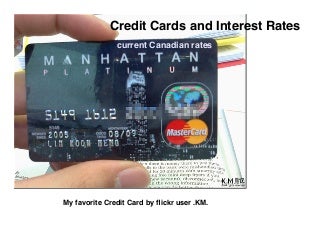One of those questions you may be having is if getting a loan can damage your credit. Primarily, the way that you manage loans is a vital component in determining your credit score. Among the critical elements in the calculation of your credit, loans may improve or drop your own score. If you don’t make timely payments, taking out a loan could be as excellent as tanking your credit rating. Primarily, lenders use your credit report to inform the kind of customer you’re. This preliminary examination might be counterintuitive as you need a loan to build a fantastic history. If this loan program is your very first one, your chances of success may be rather slim. To be qualified for a new loan, you are going to need a fantastic history and utilization ration to be qualified for credit. If you’ve cleared your bills early in the past, they might consider you a creditworthy consumer. If you continuously make overdue payments, prospective lenders will question your loan eligibility. If you’ve damaged your report previously, taking out a new loan might help you reestablish it. Lending volume accounts for approximately a third of the account, and you should pay the utmost attention to it.
In a nutshell, your credit report involves your present financial situation and debt volume. Primarily, you will be eligible to run a standard checking account if you have had a fantastic history. If that is not the case, your choices for a checking account could be limited to another chance account. If you have a checking account with a financial institution, its transactions won’t affect you. Unless you clear all invoices on time, an overdraft could show up on your account. On the flip side, the overdraft might seem if the bank turns the sum to a collection. That said, there are minimal scenarios when this account could fall your credit rating. Through application, some banks can execute a soft inquiry on your credit report. The inquiry or program for overdraft protection could normally tank your credit rating.
 Loan issuers will barely approve your application for a new loan if you have bad credit. Since you need a loan to build your credit, getting the loan would be an uphill job. However, the great news is that you can get a secured credit card even with bad credit. Some lenders could be more willing to issue credit cards to consumers even if they have zero history. Basically, you’ll need to place a deposit that works as collateral in case the equilibrium goes unpaid. Card issuers collect basic identification data and financial information from the card candidates. Once you’ve given the issuer consent to carry out a credit check, you’ll begin processing the deposit. Some card issuers also ask for your bank account information where they withdraw the deposit. There’s a good gap between conventional credit cards and secured cards. Despite all these gaps, you’ll definitely benefit from some of its advantages.
Loan issuers will barely approve your application for a new loan if you have bad credit. Since you need a loan to build your credit, getting the loan would be an uphill job. However, the great news is that you can get a secured credit card even with bad credit. Some lenders could be more willing to issue credit cards to consumers even if they have zero history. Basically, you’ll need to place a deposit that works as collateral in case the equilibrium goes unpaid. Card issuers collect basic identification data and financial information from the card candidates. Once you’ve given the issuer consent to carry out a credit check, you’ll begin processing the deposit. Some card issuers also ask for your bank account information where they withdraw the deposit. There’s a good gap between conventional credit cards and secured cards. Despite all these gaps, you’ll definitely benefit from some of its advantages.
Your credit rating is a credit score snapshot by which lenders use to judge your creditworthiness. Different loan issuers use customer-specific versions to check their consumers’ credit reports. Also, credit card firms also use tailored strategies when assessing a credit report. Your application will less likely be successful when you’ve got a poor credit score and report. In rare scenarios, your application would be prosperous, but you’ll incur expensive fees. It is crucial to see your finances to avoid damaging your credit report and score. Assessing your credit rating often would provide you a clear summary of your fiscal well-being. The 3 data centers provide a free credit report to consumers each year. Retrieve your account and inspect the elements that could damage your credit report. You should begin working on the easy things before involving paralegals in removing the intricate ones. If you may require a credit repair company, be sure to select the one that suits your requirements and budget. Always make sure you keep good financial habits and check your report regularly.
Most of us pay bills — ranging from bank cards to phones, loans, and lines of credit. If you don’t complete the obligations on time, lenders will make attempts to collect their cash. Whenever a collection agency makes efforts to recover the cash, it adds to a report as a collection. At the most recent FICO versions, Credit Guide paid collections will not damage your score, however, unpaid ones surely will. When one of your accounts gets regained by bureaus, your score drops based on several factors. If your score is significantly high, you are going to lose more points than someone with a handful of points. If you adored this article so you would like to collect more info concerning ncc.noor.jp kindly visit the web site. Missing a payment will make your loan issuer report it as”late payment” to the three bureaus. But if you fail to pay penalties or bring your accounts to standing, you may encounter a collection. Once your account enter collection, you will immediately see your credit rating dropping. Resolving a collection is a painstaking procedure, hence making timely payments is obviously an perfect way.
If you are you looking for more info on ncc.noor.jp visit our own webpage.
